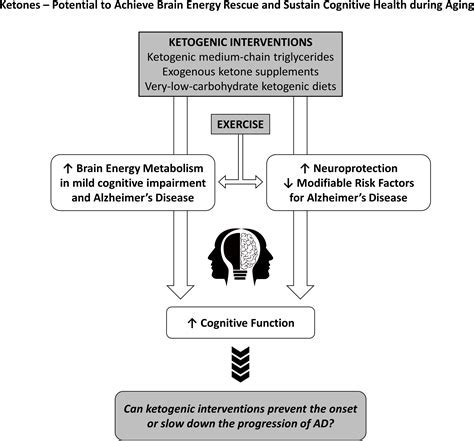The potential cognitive and neuroprotective benefits of ketones are a topic of growing interest within the scientific and health communities. Various studies have suggested that a ketogenic diet, which emphasizes low carbohydrate intake and high-fat consumption, might offer advantages beyond weight loss. However, the conversation is complex, encompassing both clinical success and skepticism around diet fads. This article will examine the nuances of ketone-based diets and their impacts on cognitive function and overall brain health.
The central argument supporting the cognitive benefits of ketones lies in the concept of metabolic flexibility—our body’s ability to switch between different sources of energy. Typically, the brain relies heavily on glucose. However, emerging research suggests that during ketosis, when the body breaks down fats into ketones, the brain can run more efficiently on these smaller energy molecules. This is particularly relevant for individuals with insulin resistance, as ketones offer an alternative fuel that might enhance cognitive performance.
Critics argue that the enthusiasm surrounding ketogenic diets borders on zealotry, warning that equating them with metabolic health without long-term studies could be misleading. Observational data indicate significant concerns about lipid profiles when the diet is not monitored correctly. Individuals who experience positive transformations often do so with disciplined dietary regimens and considerable alterations in overall food intake, making it hard to isolate ketones as the definitive factor in enhanced cognition.
One fascinating example of ketones enhancing cognitive function can be traced within the realm of epilepsy treatment. The ketogenic diet was initially developed in the early 20th century to help children with epilepsy, demonstrating the potential neuroprotective role of ketones. The principle is based on fasting-mimicry, where ketogenesis—the metabolic formation of ketones—provides a stable energy supply that can prevent seizures. This application points towards other possible benefits in neurological health, beyond the realm of epilepsy.
However, the argument that ‘sugar is a poison’ and ketones are the magical alternative warrants scientific scrutiny. It is a broader issue of balance and moderation. Excessive sugar consumption can indeed lead to metabolic disorders, but equating all carbohydrates as detrimental can oversimplify complex nutritional needs. For instance, natural sugars found in fruits come with essential nutrients and fibers, offering benefits when consumed in moderate quantities.
Furthermore, ketosis should not be mistaken as the ‘be-all and end-all’ for cognitive enhancement. The state of ketosis induced by extreme dieting or prolonged fasting can initially hinder performance due to what is commonly referred to as ‘keto flu,’ characterized by symptoms like headaches and fatigue as the body transitions away from glucose. This period typically lasts until the body adapts to its new primary source of energy—ketones. Many who persist report benefits like improved mental clarity and focus.
The introduction of exogenous ketones, or ketone supplements, presents another dimension to this discussion. These supplements can induce a state of ketosis without the strict dietary restrictions, making the cognitive benefits more accessible. Evidence suggests that exogenous ketones can support cognitive function during periods of intense mental activity or stress. However, it is important to note that supplementation should not replace a balanced diet and should be used with caution, particularly considering individual metabolic responses.
Critically, the efficacy of ketones extends beyond metabolic and cognitive health. References to conditions such as Alzheimer’s disease and Type 2 diabetes (T2D) indicate that ketones might play a role in mitigating symptoms associated with these diseases. For instance, a ketogenic diet has shown promise in improving glycemic control and lipid profiles in T2D patients, often helping them reduce their dependency on medication. This synergy between diet and disease management challenges traditional medical approaches, opening up new, holistic avenues for treatment.
In conclusion, while ketones and ketogenic diets offer promising avenues for enhancing cognitive function and protecting brain health, more rigorous and long-term studies are required to establish their efficacy and safety. The trend should not be dismissed as a mere fad but scrutinized and understood in the light of robust scientific inquiry. Balanced nutrition, mindful eating habits, and regular health checks remain fundamental to achieving and maintaining optimal brain and metabolic health.


Leave a Reply